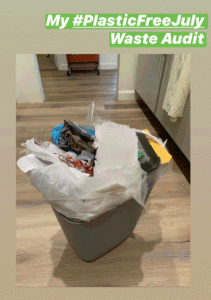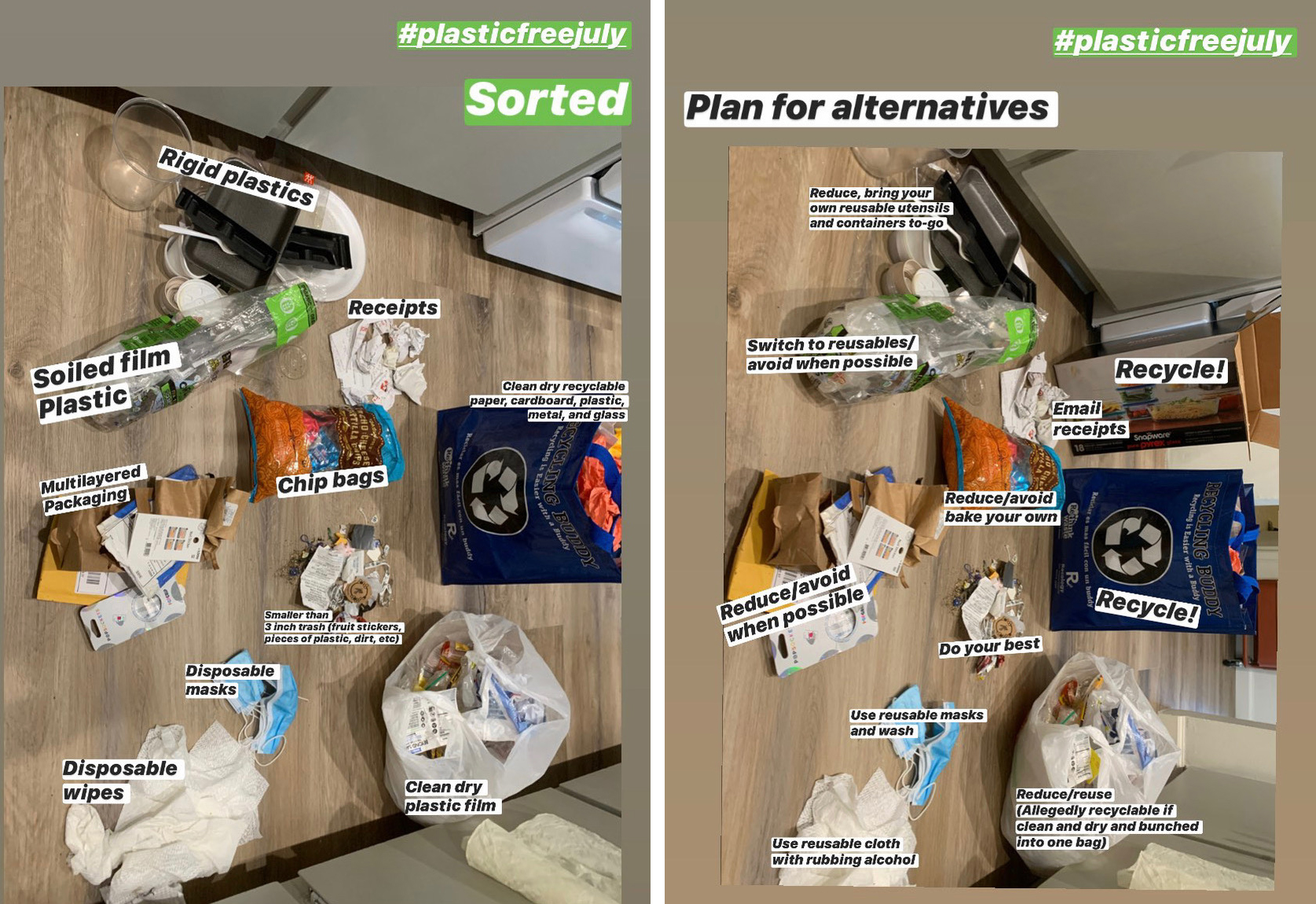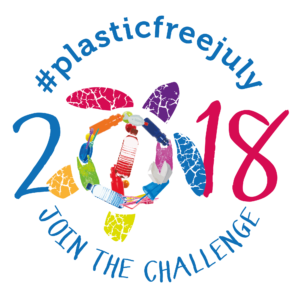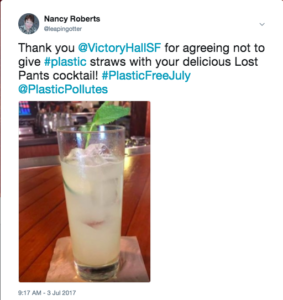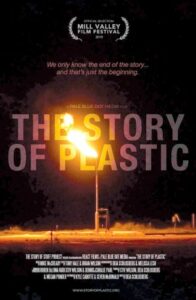 Last week, the Gigantic team watched the documentary The Story of Plastic — separately of course, at home. Each team member then shared the one takeaway that struck them the most.
Last week, the Gigantic team watched the documentary The Story of Plastic — separately of course, at home. Each team member then shared the one takeaway that struck them the most.
Having worked for positive change in the solid waste field, we all knew the film wouldn’t be very uplifting, as Lisa expresses. But she sees possible solutions:
As someone who has promoted public participation in recycling for 25 years, it was painful to watch the scenes showing plastic trash piling up on the streets and waterways in the Philippines and Indonesia. It is tempting to feel that recycling is futile. But upon further reflection, it is not that recycling is all bad, or doesn’t have a place in a sustainable future. Instead of trying to recycle whatever comes down the pipeline, society must move toward sustainable packaging solutions, such as limiting product packaging to a handful of easily recycled materials. We can build recycling infrastructure in the U.S. to meet our needs.
Peter wants to see a change in how plastics are used, and hopes that take-back programs and legislation will improve prevention and recycling of plastic waste:
While we are fortunate in the Bay Area to have progressive policies geared toward reducing single-use plastics, the Story of Plastic shines light on the global impact of this issue. When less than 1/10th of plastic produced in the last 40 years has been recycled, it’s time to rethink our plastic use – not just accept the fantasy that it will be recycled. Without a doubt, plastic is a valuable resource. However, there are exciting, viable solutions – such as extended producer responsibility (EPR) and single-use bans – that significantly reduce the environmental impact of plastic.
Nancy was more skeptical of bans and EPR:
The film’s solution of legislation is problematic in the U.S. Perhaps we are doomed to become the world’s laggards in zero waste adoption, and that may rub off on others.
“EPR” needs re-branding- it’s a dull, unattractive term with intimations of punitiveness and what I call “fussy mom-ness”. [This runs in a lot of environmental messaging. Instead of “stand up straight” and “clean your room,” we get “don’t put that there” and “stop doing this.”] How can we make Extended Producer Responsibility an exciting call to action?
Stef also commented on EPR, with a perspective on its use in her home country:
In Germany an EPR system for packaging was written into law in 1991, but almost 30 years later it has not solved the plastic crisis there. Companies pay license fees for the amount and type of the single-use packaging they bring to market. Those funds in turn pay for third-party businesses to collect and process the materials, in alignment with recycling goals set for different material categories. Although price structures favor non-plastic and more recyclable materials, they haven’t led to less plastic because the material itself is so cheap. This also means recycling is hardly lucrative. With incineration (waste to energy) counted as “recovery” in much of Europe, it is not a surprise that true plastic recycling in Germany is at only 16% and plastic packaging is everywhere, in spite of EPR.
Both Kas and Dennis were most struck by the injustice of how the plastic pollution crisis plays out around the world. Kas said:
This film brings to light the interconnectedness of the plastics problem we face on our planet and reminds me of another global pandemic we face right now — especially around the inequality of those who bear the brunt of the issue. Without a global, coordinated and transparent effort to right-size the issue this single-plastic genie will be tricky to get back into the (recyclable) bottle! Daunting, sure, and yet we have to try!
For Dennis, the environmental justice issues presented in the movie resonated on a personal level:
Many scenes in the documentary reminded me of growing up in east Los Angeles, where for decades Exide Battery Recycler in Vernon had spewed lead into the surrounding communities of Boyle Heights and Huntington Park. My childhood home was less than half a mile from a roofing chemical plant that also emitted pollutants. I didn’t need to go to the Philippines, India or Indonesia to experience environmental injustice—it was a given in my own Latinx community. In the same way that Houston lacks a planning code, which enables heavy industry to be sited next to communities of color, so too was my community vulnerable to being on the frontlines of pollution. Perhaps my own lifespan has been cut short by 10-20 years as a result of this proximity. What would happen if a refinery were put in places like Beverly Hills? If we want to solve the plastic waste crisis, environmental justice and social equity must be part of it.
Inequity was also what stood out most for Nicole. But she sees hope in the type of community organizing featured in the film:
What really stuck with me is the extraordinary power of movements joining together across cultures to fight back against the decisions made primarily by a privileged few in the West. The film does an amazing job of highlighting the inequitable distribution of the negative impacts of single-use plastics, primarily felt by frontline communities around the world, but also sharing the stories of community leaders that have organized to demand producer responsibility and create local, regenerative systems. It gives me hope that during this unprecedented time people who were not aware are waking up to these stark inequities and starting to listen to and join frontline communities in demanding systems that support rights for all life, not just the privileged few.
As the Gigantic team continues our work for positive environmental behavior change, we encourage our network of clients, partners and allies to watch the documentary and join us in doing the necessary work to stem the tide of plastic pollution.
